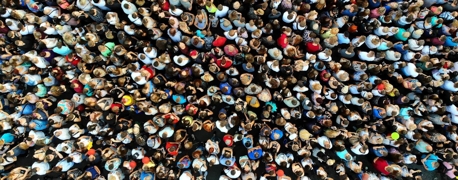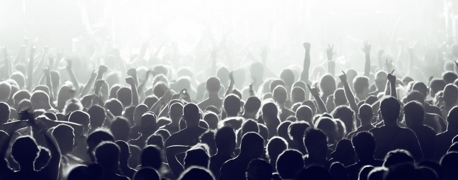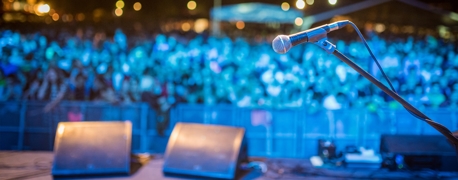Concert & Festival Injuries: 3 Signs You Might Have a Lawsuit

It was just after 9 p.m. on November 5, 2021. It was the first day of the third Astroworld Festival, an event that drew a crowd of over 55,000 to NRG Park in Houston, Texas. Rapper Travis Scott took the stage, and a surge of people pressed forward. Trapped behind barriers with nowhere to go, fans started having trouble moving. Soon some couldn’t even breathe. Scott continued performing until about 10:12 p.m. By that time, at least 11 people had gone into cardiac arrest. 10 ended up losing their lives. The youngest was just 9 years old.
This tragedy was not the first of its kind:
- In 1979, 11 people were crushed and died trying to get into a concert by The Who in Cincinnati, Ohio.
- In 1987, 2 teens lost their lives in a stampede at a concert in Nashville, Tennessee.
- In 1991, 3 young fans were killed in a crowd surge at an AC/DC concert in Salt Lake City, Utah.
- In 2003, 100 people lost their lives in a fire at a Great White concert in West Warwick, Rhode Island.
- In 2021, a man died in a fall from a balcony at a Phish concert in San Francisco, California.
Going to a concert should not put you in a life-or-death situation—and yet fans have been injured time and again because of failures by event organizers, venues, and others to create live events that are safe for all who attend. Something needs to change, and holding at-fault parties accountable in court is a start.
If You Were Injured at a Concert, Do You Have a Case?
If you were injured at a concert or festival and are asking yourself about your legal rights, your best option is to talk to an attorney experienced with these cases. Every situation is different. There is no one-size-fits-all answer or approach to a concert injury lawsuit. A seasoned lawyer can talk to you about what happened and help you determine what to do (and not to do) to protect your right to compensation from any at-fault parties.
With that said, however, there are three things to consider:
1. Who Was Responsible for Your Safety at the Concert?
The companies that put on live events are responsible for keeping fans safe. They are responsible for providing reasonably safe environments for attendees to watch their favorite performers, teams, and bands. They owe a “duty of care” to attendees. If they do not uphold this duty, they can be held accountable.
A duty of care at a concert or other live event may include things like:
- Having enough personnel at entrances to perform security checks and scan tickets.
- Hiring a private security company and working with local law enforcement to manage the event.
- Properly organizing general admission/festival seating areas to prevent overcrowding.
- Monitoring the audience for signs of overcrowding, surges, or crowd crush.
- Responding to reports of violence, assault, drugs, or other issues quickly and effectively.
- Deescalating potential problems in the crowd, on stage, or at entrances and exits.
- Providing enough clearly marked medical stations and trained medics to help fans as needed.
Event organizers must create detailed security plans to address every single aspect of an event, from beginning to end. In many jurisdictions, this plan must be approved by local authorities.
The truth is this: a live event of any size can be pulled off without fans getting injured. Injuries happen when organizers, venues, performers, and other parties involved in organizing and carrying out the event do not protect fans. That’s what happened at Astroworld and the other concert disasters mentioned above.
This is the first piece of the puzzle in considering a concert injury lawsuit:
Who owed you a duty of care? Who was responsible for your safety?
2. Was Enough Done to Keep You Safe at the Concert?
After the Astroworld tragedy, it was apparent that not enough had been done to keep fans safe. Event organizers lost control before the gates even opened. One security guard reported he was hired over text message and his qualifications were not verified. Only 34,000 tickets were scanned, but over 55,000 people were present.
What went wrong?
Concert injuries happen when:
- Events are overcrowded.
- General admission areas are not adequately managed.
- Gates are not correctly manned.
- There are not enough security personnel and/or medics.
- Security and/or medical personnel are not adequately trained.
- There is no complete security plan in place to address emergencies.
- Security is slow to respond to problems or does not respond at all.
- Performers incite, encourage, or fail to respond to violence or other problems.
These situations can be avoided by proper event planning and venue management. This is the duty of care that event organizers, venues, performers, and others owe to fans and their families.
This is the second piece of the puzzle:
Was the duty of care violated? Was enough done to keep you safe?
3. Were You Injured Because Event Organizers Didn’t Do What They Were Supposed To?
Concert injuries can range from minor to severe. They may be physical or psychological, or they may be a combination of the two. They may impact a person’s life in many ways. Post-traumatic stress disorder (PTSD), depression, anxiety, and insomnia are all consequences of suffering the horrors of a disaster like Astroworld. The physical effects may include broken bones, head trauma, crush injuries, and asphyxiation.
When fans are injured or killed because of failures on the part of organizers to manage and control an event, they may be able to come forward to seek justice in civil court. Concertgoers and their families can file personal injury or wrongful death lawsuits against the at-fault parties, seeking answers and recoveries that will help them start to rebuild.
The compensation in a concert injury lawsuit may address:
- Medical bills
- Lost earnings
- Future medical care
- Loss of future earnings
- Emotional trauma
- Pain and suffering
- Funeral costs
Punitive damages may also be awarded in cases involving gross negligence or wrongdoing. These are paid in addition to other damages and are meant to penalize or make an example of the defendant/s.
There is no way to go back in time to prevent a concert disaster from happening in the first place. Organizers must be held accountable after the fact, with the hopes that they and others will learn from their wrongdoing and that circumstances will change at future concerts and festivals.
This is the final piece of the puzzle:
Were you harmed because the event was unsafe? Were you injured because event organizers didn’t do what they were supposed to?
Talk to a Concert Injury Lawyer About Your Case
The only way to know for certain whether you have a case is by talking to a concert injury lawyer. You can share your story, get your questions answered, and find out what can be done. At Arnold & Itkin, it starts with a free consultation. We’ll talk to you about what happened and help you understand your options and rights. If we take your case, you don’t have to worry about any upfront costs and will pay no legal fees at all unless we win.
Arnold & Itkin is recognized as a leader in personal injury litigation across the United States. Our attorneys have represented people from all walks of life throughout the country after suffering the worst losses and injuries. We have fought for—and won—over $20 billion in verdicts and settlements for our clients, helping them get the type of compensation that has changed their lives. We’re doing the same for Astroworld attendees and families, and we may be able to do the same for you.
Do you have a concert injury lawsuit? Call (888) 493-1629 or fill out our online form to learn more.


